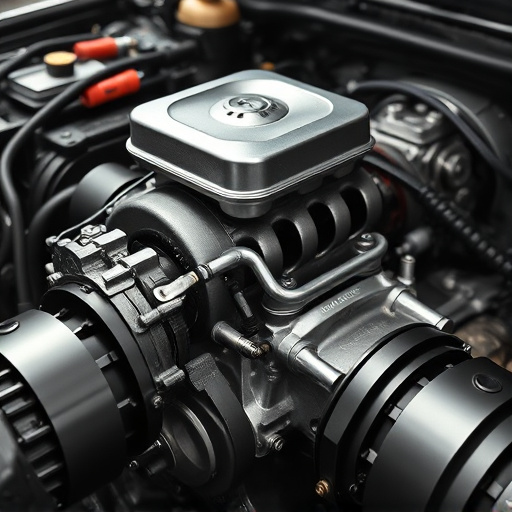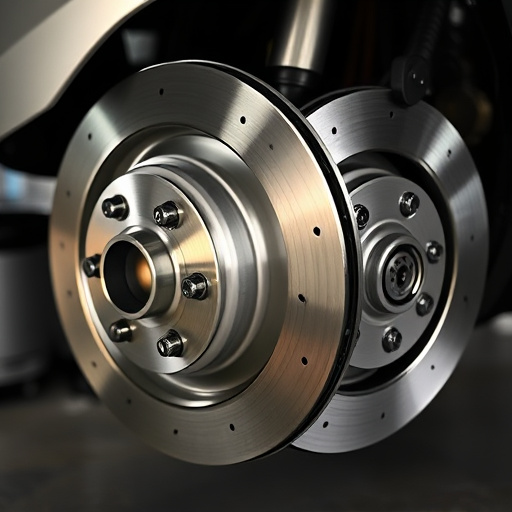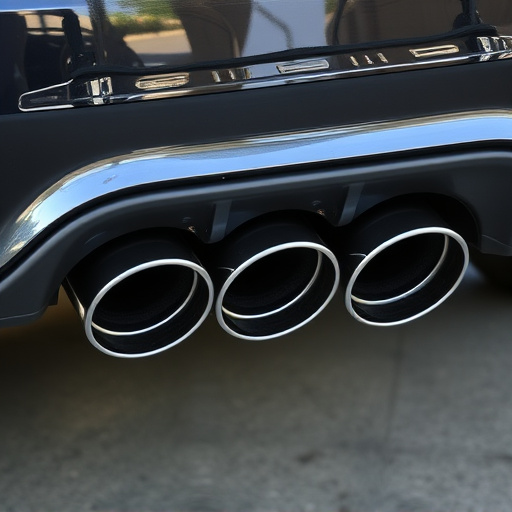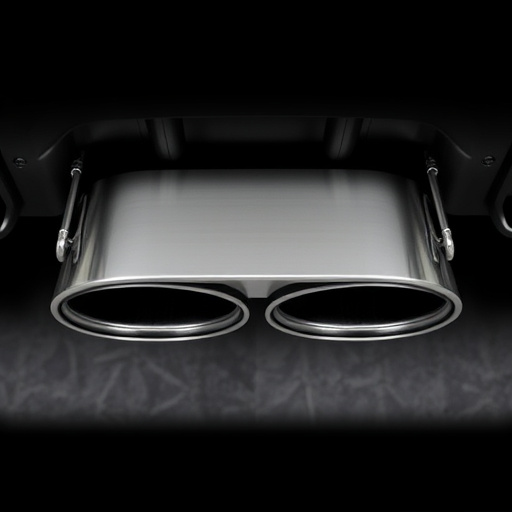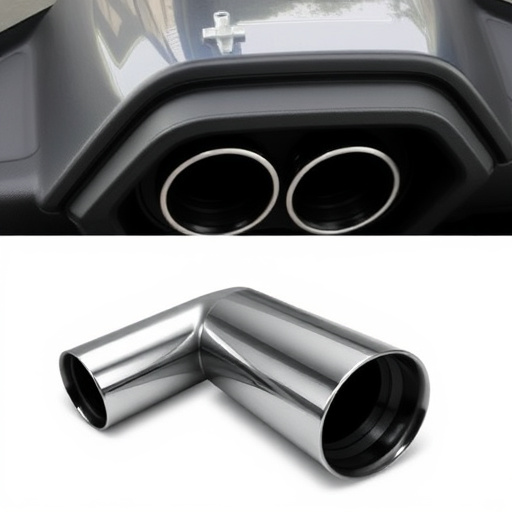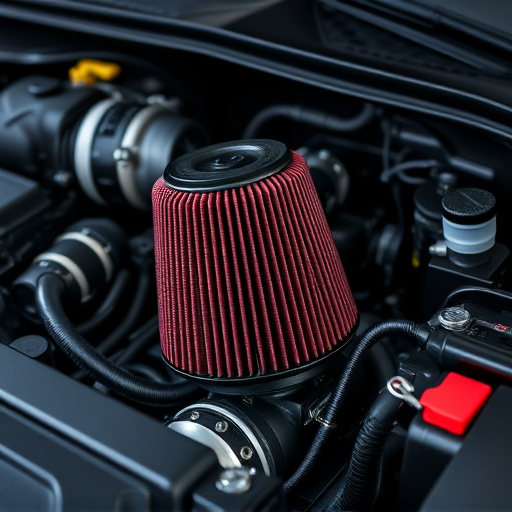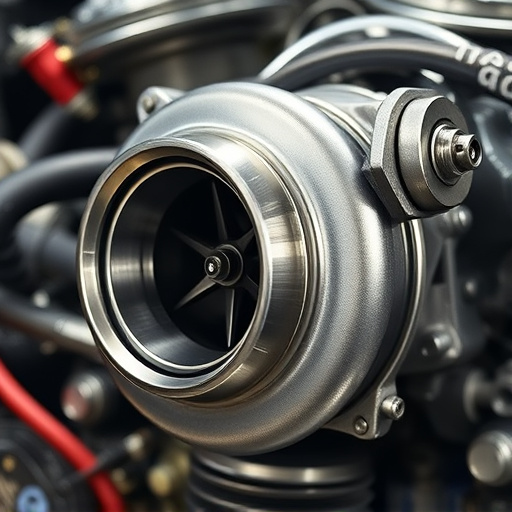Exhaust systems for cars are crucial for safe gas expulsion, optimal performance, and noise reduction. They start with an exhaust manifold, followed by pipes that lower backpressure for efficient fuel burning. Components like coilover kits improve handling, while customizable muffler tips offer aesthetic appeal and control over sound. Efficient exhaust systems enhance fuel economy and engine health by managing heat build-up and gas flow, supporting overall vehicle efficiency.
Exhaust systems are an essential component of your car’s performance and efficiency. These systems facilitate the expulsion of harmful gases, improving engine performance while reducing noise pollution. Understanding how exhaust systems function is key to unlocking their impact on your vehicle’s fuel economy. This article delves into the basic operation of exhaust systems and explores advanced upgrades that can optimize fuel consumption, ultimately enhancing your car’s overall effectiveness.
- Understanding Exhaust Systems: Basic Functionality
- How Exhaust Systems Affect Fuel Consumption
- Optimizing Fuel Economy: Advanced Exhaust Upgrades
Understanding Exhaust Systems: Basic Functionality
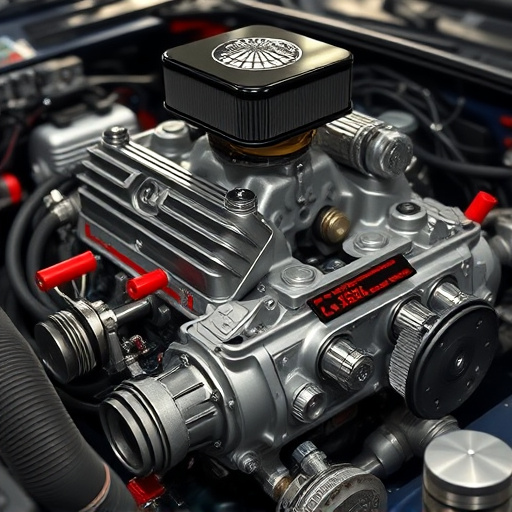
Exhaust systems for cars are an essential component that facilitates the expulsion of harmful gases and plays a crucial role in maintaining optimal vehicle performance. At its core, it consists of several parts working in harmony to achieve this goal. The primary function is to channel the by-products of combustion away from the engine, ensuring smooth operation and minimizing noise pollution. This intricate system begins with the exhaust manifold, which collects gases from multiple cylinders before routing them through a series of pipes. These pipes are designed to reduce backpressure, allowing for more efficient fuel burning in the engine.
Along this pathway, various components contribute to overall performance. High-performance parts like coilover kits can enhance handling and stability by providing precise suspension control. Additionally, customizable muffler tips offer both aesthetic appeal and a means to fine-tune exhaust note, catering to enthusiasts who desire a more sporty driving experience. Efficient exhaust systems not only facilitate better fuel economy but also contribute to the overall health of a vehicle’s engine by reducing heat build-up and optimizing gas flow.
How Exhaust Systems Affect Fuel Consumption
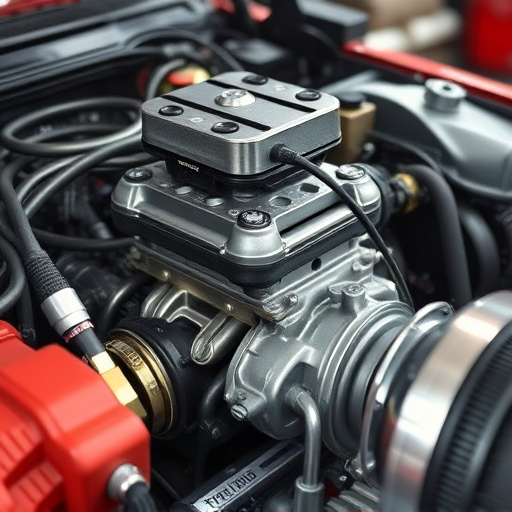
Exhaust systems for cars play a significant role in influencing your vehicle’s fuel economy. These systems are designed to facilitate the flow of exhaust gases away from the engine, but their efficiency can impact how much fuel your car consumes. A well-designed exhaust system reduces backpressure in the combustion chamber, allowing the engine to operate more smoothly and efficiently. This means the engine doesn’t have to work as hard to force exhaust out, which translates to better fuel economy.
Additionally, components like muffler tips can contribute to improved performance by reducing noise pollution without compromising airflow. While they don’t directly affect fuel consumption, they ensure a smoother driving experience, indirectly supporting overall vehicle efficiency. Unlike some modifications that may negatively impact fuel economy, such as installing cold air intakes which can sometimes disrupt engine balance, well-maintained exhaust systems enhance the car’s performance and make it more eco-friendly.
Optimizing Fuel Economy: Advanced Exhaust Upgrades
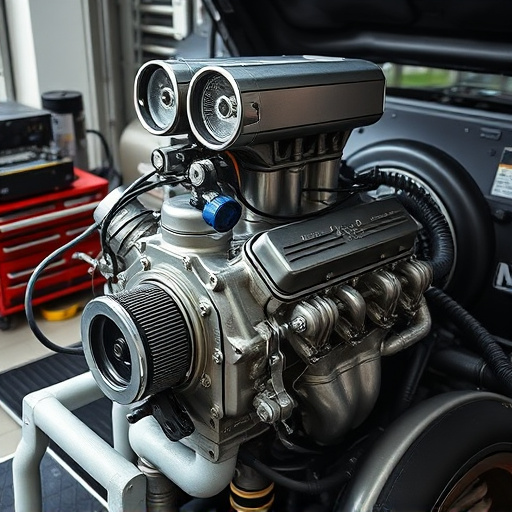
Optimizing Fuel Economy through Advanced Exhaust Upgrades is a strategic move for car enthusiasts aiming to enhance their vehicle’s performance while reducing fuel consumption. Modern exhaust systems for cars are designed with innovative features that go beyond simple gas expulsion. These upgrades, often referred to as performance exhausts, can significantly impact your car’s efficiency. By reconfiguring the flow of gases, advanced exhaust systems reduce backpressure in the engine, allowing for better combustion and improved air intake systems. This, in turn, leads to increased horsepower and torque while promoting a more streamlined fuel burning process.
The benefits extend beyond numbers on the gauge. Efficient exhaust systems contribute to a smoother ride, ensuring your vehicle doesn’t work as hard to maintain speed. Moreover, they can add a touch of sportiness to your driving experience. Whether it’s a modest upgrade or a bespoke performance exhaust, these modifications cater to various preferences while promoting environmental friendliness by optimizing fuel economy.
Exhaust systems play a pivotal role in your car’s overall performance and fuel economy. By understanding how these systems function and their impact on fuel consumption, car owners can make informed decisions about upgrades. Advanced exhaust modifications can significantly optimize fuel efficiency, providing both environmental and economic benefits. Investing in high-quality exhaust systems for cars is a smart move that ensures your vehicle runs smoothly while reducing fuel costs.








